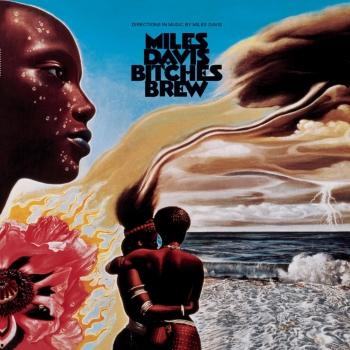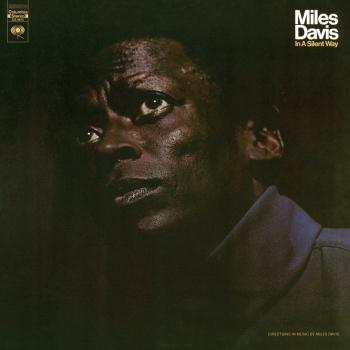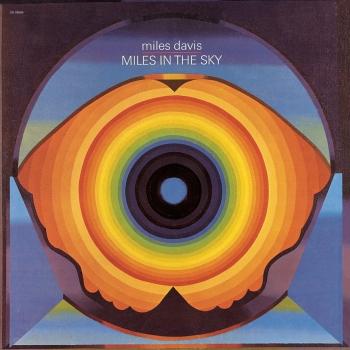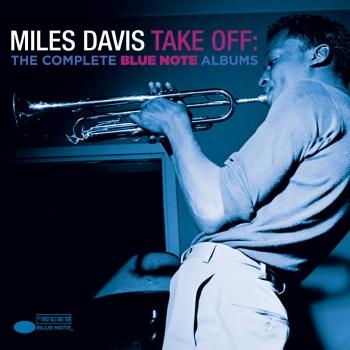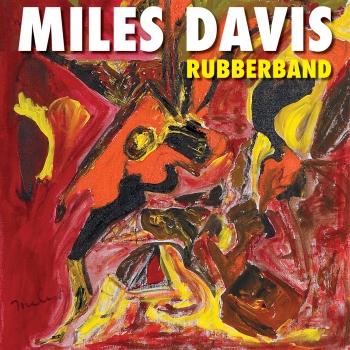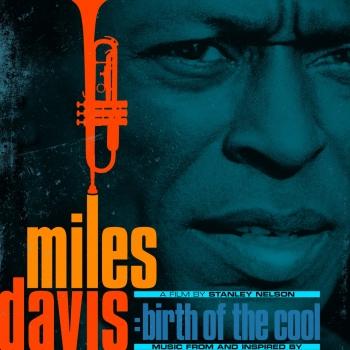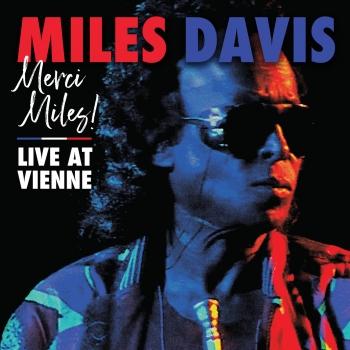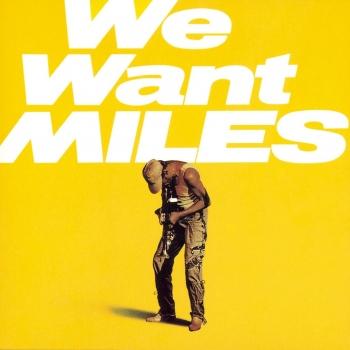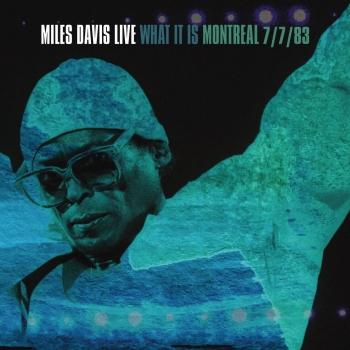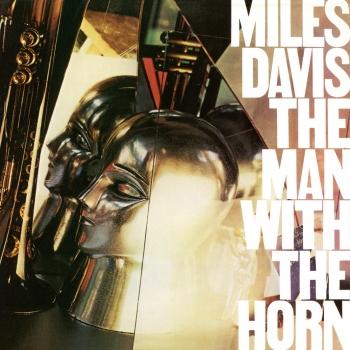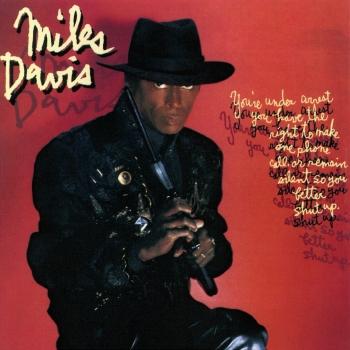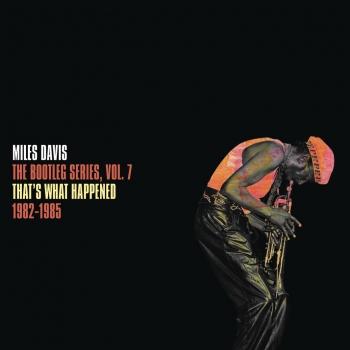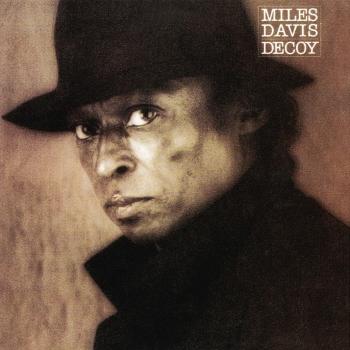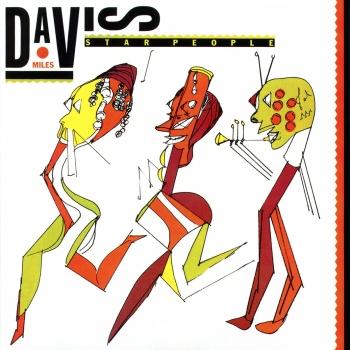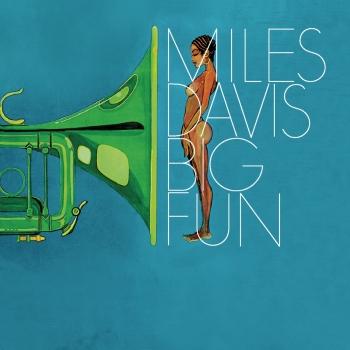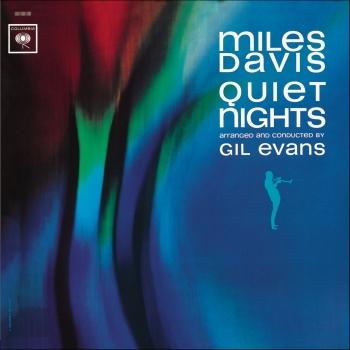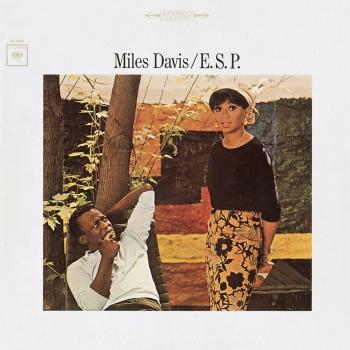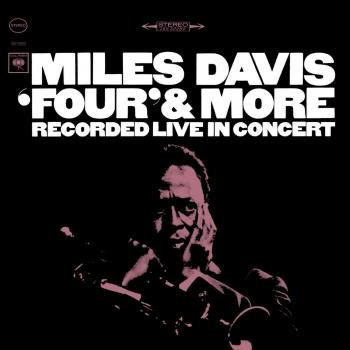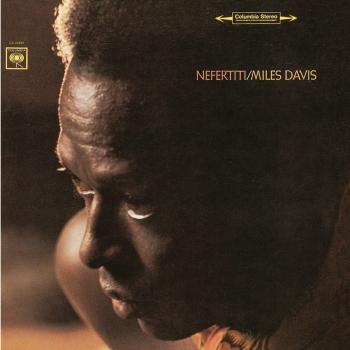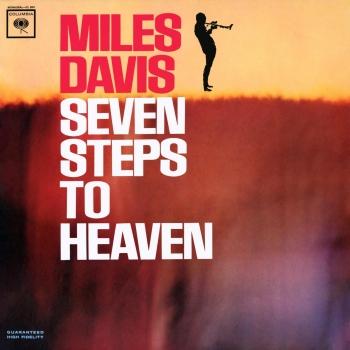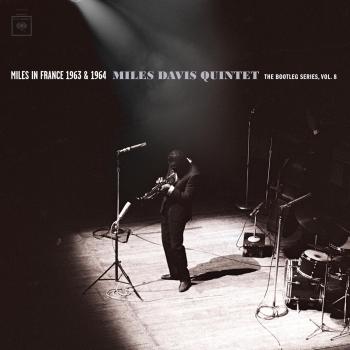
We Want Miles (Remastered) (Live) Miles Davis
Album info
Album-Release:
1982
HRA-Release:
16.09.2022
Album including Album cover
I`m sorry!
Dear HIGHRESAUDIO Visitor,
due to territorial constraints and also different releases dates in each country you currently can`t purchase this album. We are updating our release dates twice a week. So, please feel free to check from time-to-time, if the album is available for your country.
We suggest, that you bookmark the album and use our Short List function.
Thank you for your understanding and patience.
Yours sincerely, HIGHRESAUDIO
- 1 Jean Pierre (Live at Shinjuku Nishi-Guchi Hiroba, Tokyo, Japan - Oct. 1981 - version 1) 10:30
- 2 Back Seat Betty (Live at Avery Fisher Hall/Lincoln Center, New York, NY - July 1981) 08:10
- 3 Fast Track (Live at the Kix Club, Boston, MA - June 1981) 15:10
- 4 Jean Pierre (Live at Shinjuku Nishi-Guchi Hiroba, Tokyo, Japan - Oct. 1981 - version 2) 04:02
- 5 My Man's Gone Now (Live at the Kix Club, Boston, MA - June 1981) 20:12
- 6 Kix (Live at the Kix Club, Boston, MA - June 1981) 18:35
Info for We Want Miles (Remastered) (Live)
We Want Miles is a double album recorded by jazz trumpeter Miles Davis in 1981, produced by Teo Macero and released by Columbia Records in 1982. The album combines recordings from the first live appearances by Davis in more than five years, at Boston's Kix Club, on June 27, 1981. Other tracks were recorded at Avery Fisher Hall, New York City, on July 5, and a specially prepared stage at Nishi-Shinjuku in Tokyo, Japan, October 4 of that year.
Miles Davis had returned to the studio in 1980, after a long hiatus during which he left the trumpet alone and focused on women and cocaine, according to his autobiography. Changing some personnel while recording The Man with the Horn, he formed a live band consisting of Mike Stern on guitar (replacing Barry Finnerty), Al Foster on drums, Mino Cinelu on percussion (he had replaced Sammy Figueroa), Bill Evans on soprano, and Marcus Miller on bass.[6] By this time it had been six years since he played live.
Davis secured a two-performance gig on July 2, 1981, at the Kool Jazz Festival (the name given to the old Newport Jazz Festival while it was held in New York City, at Avery Fisher Hall), but first played four shows at Kix, a club in Boston. Recordings from these shows, with a recording from an October date in Japan, were used to compile We Want Miles. It was for the shows at Kix, 26–29 June, that he hired Cinelu, whom he saw play percussion at a New York City club (Cinelu having just fortuitously switched from drums—Davis was looking for a percussionist, not a drummer). After the show Davis put his hand on Cinelu's arm and said, "You're a motherfucker". Cinelu didn't recognize Davis, who was in poor health, but when he was told who it was, returned to Davis who asked for his number. Soon after Davis called him, saying "come to the studio, you motherfucker". He attended an impromptu jam session at Davis's apartment with Mike Stern, playing with a cymbal and some drums, and was hired.
Rehearsals were mostly jam sessions, though technical preparations were meticulous and included the development of a wireless system for Davis's trumpet. The younger band members were somewhat disconcerted by the looseness of the rehearsals (Stern especially was worried), but this organization, with no music written down beyond basic song structures, was exactly what Davis wanted.
"Davis's second recording since ending his six-year retirement was one of his best of the 1980s. Unlike his bands from the 1970s, this particular unit leaves plenty of space and plays much more melodically. Guitarist Mike Stern lets loose some fury, but electric bassist Marcus Miller is not reluctant to walk now and then in a straight-ahead fashion, drummer Al Foster and percussionist Mino Cinelu are tasteful, and Bill Evans gets in a few good spots on soprano. As for Davis, he was gradually regaining his earlier form." (Scott Yanow, AMG)
Miles Davis, trumpet
Bill Evans, saxophone
Marcus Miller, bass
Al Foster, drums
Mike Stern, guitar
Mino Cinelu, percussion
Digitally remastered
Please Note: We offer this album in its native sampling rate of 96 kHz, 24-bit. The provided 192 kHz version was up-sampled and offers no audible value!
Trumpeter Miles Davis grew up in East St. Louis, Illinois, just across the river from St. Louis, Missouri. His parents were affluent, and had the means to support his musical studies as a boy. He began playing the cornet at age nine, and received his first trumpet at around twelve or thirteen. He studied classical technique, and focused mainly on using a rich, clear tone, something that helped define his sound in later years.
As a teenager, he played in various bands in St. Louis, which was rich with jazz, as big bands often stopped there on tours throughout the Midwest and southern states. The most important experience he had was when he was asked to play in the Billy Eckstine band for a week as a substitute. The group included Charlie Parker, Dizzy Gillespie, and Sara Vaughan. After playing with these stars, Davis knew he had to move to New York to be at the heart of the jazz scene.
In Pursuit of Parker:
In 1944 Davis moved to New York City where he had earned a scholarship to study trumpet at the Juilliard School of Music. Upon arriving however, he sought after Charlie Parker, and meanwhile spent all of his time in jazz clubs listening to bebop. He was transfixed on the music, and grew utterly bored with his classical studies. After less than a year at Juilliard, he dropped out and tried his hand at performing jazz.
Although not particularly stunning, his playing was good enough to finally attract Charlie Parker, and Davis joined his quintet in 1945. He was often criticized for sounding inexperienced, and was compared unfavorably to Dizzy Gillespie and Fats Navarro, who were the leading trumpeters at the time. Both boasted stellar technique and range, neither of which Davis possessed. In spite of this, he made a lasting impression on those who heard him, and his career was soon set aloft.
Cool Jazz and a Rise to Fame:
Encouraged by composer and arranger Gil Evans, Davis formed a group in 1949 that consisted of nine musicians, including Lee Konitz and Gerry Mulligan. The group was larger than most bebop ensembles, and featured more detailed arrangements. The music was characterized by a more subdued mood than earlier styles, and came to be known as cool jazz. In 1949 Davis released the album Birth of the Cool (Captiol Records).
Change of artistic direction became central to Davis’ long and increasingly influential career. After dabbling in hard bop as a leader on four Prestige recordings featuring John Coltrane, he signed with Columbia records and made albums that featured Gil Evans’ arrangements for 19-piece orchestra. These were Miles Ahead, Porgy and Bess, Sketches of Spain, and Quiet Nights. He rose in popularity with these recordings, in part due to his signature sound, which he often enhanced by using a Harmon mute.
Kind of Blue and Beyond:
In 1959 Davis made his pivotal recording, Kind of Blue. It was a departure from all of his previous projects, abandoning complicated melodies for tunes that were sometimes only composed of two chords. This style became known as modal jazz, and it allows the soloist expressive freedom since he does not have to negotiate complex harmonies. Kind of Blue also featured John Coltrane, Cannonball Adderley, and Bill Evans. The album is one of the most influential in jazz, and is Columbia Records’ best-selling jazz record of all time.
In the mid 1960s Davis changed directions again, forming a group with Herbie Hancock, Wayne Shorter, Tony Williams, and Ron Carter. This group was known for the excellence of each individual member, and also for its unique performance approach. Each night the tunes would sound different, as the musicians would sometimes only loosely adhere to the song structures, and often transition from one right into the next. Each player was given the chance to develop his solos extensively. Like all of Davis’ previous groups, this quintet was highly influential.
Late Career:
Despite health problems, drug addiction, and strained personal relationships, Davis continued to play, changing his approach with each new project. In the late 60s and 70s, he began to experiment with electronic instruments, and grooves that were tinged with rock and funk music. Two famous recordings from this period are In a Silent Way and Bitches Brew. By the time the 1980s rolled around, Davis was not only a jazz legacy, but a pop icon, whose music, persona, and fashion style were legendary.
Davis died in 1991, as perhaps the most influential jazz artist ever. His vast body of work continues to be a source of inspiration for today’s musicians. (Jacob Teichroew, About.com Guide)
This album contains no booklet.









